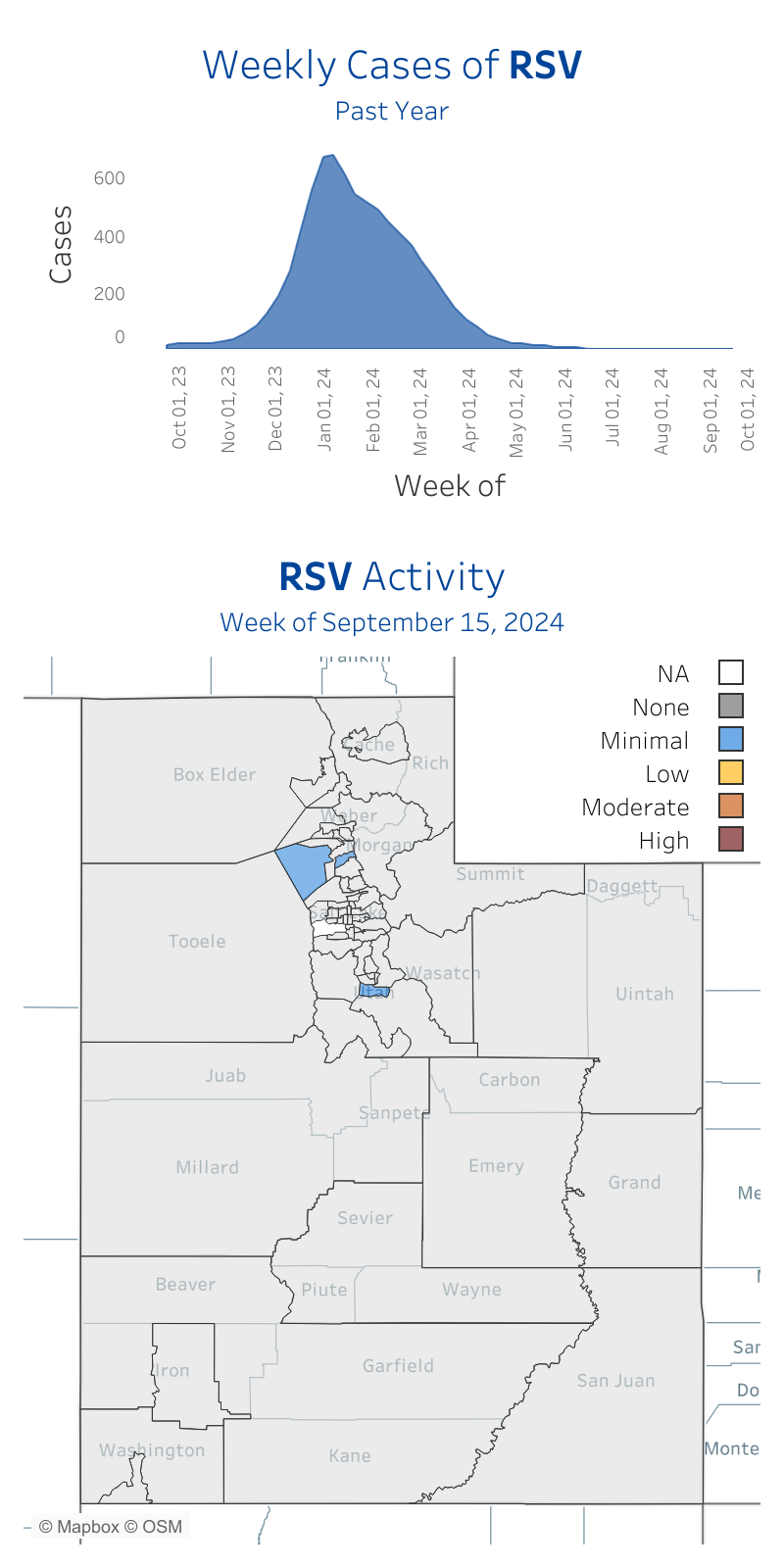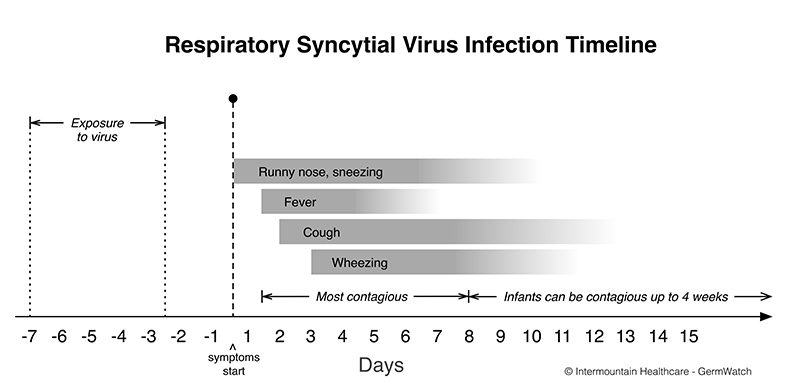Germ Profile
Also Known As: RSV
Germ Type: Virus
Season: Winter, spring
RSV is common virus that causes infection in the lungs and breathing passages. It affects people of all ages, and in older children and adults usually causes only mild cold-like symptoms. In babies and young children, however, RSV is often more serious and may require treatment, especially if it causes bronchiolitis or another complication.
Seasonality
In Utah, RSV is most active in the winter and early spring. Epidemics occur yearly, usually between January and March.

Signs and Symptoms
RSV can cause coughing, stuffy or runny nose, fever, and other “common cold” symptoms. A baby or young child with RSV may feed poorly or be fussy, inactive, or sleepy. Breathing problems – fast breathing, wheezing, or very difficult breathing – can signal worsening illness.
Infection Period
Symptoms of RSV infection typically develop between 3 and 7 days after being exposed to (or infected with) the virus. People infected with RSV are usually contagious for 3 to 8 days, but young infants and people with comprimised immune systems can be contagious for several weeks.

How It's Spread
RSV spreads easily from one person to another. A direct hit from a sick person’s cough or sneeze is the biggest contagion risk. But since the virus can live up to 6 hours on surfaces, anything that has been touched by the infected person (e.g., clothes, toys, utensils, furniture) can also transmit the virus.
Diagnosis and Treatment
Providers usually diagnose RSV by taking a medical history and doing a physical exam. If illness is severe, the provider may choose to verify the diagnosis by testing a sample of mucus.
As with many other viruses, treatment for RSV usually means managing the symptoms until the infection clears. (There’s no commonly used treatment that acts on this group of viruses.) However, bronchiolitis, pneumonia, or other complications of RSV infection may require medication and monitoring.
What can I do today?
1) Practice prevention and stop the spread:
- When RSV is going around, limit your baby’s social life. (Keep baby home from the birthday party, away from the church nursery, out of the ballcrawl at Fun World, etc.)
- Wash your hands often and well, and have children do the same.
- Disinfect tables, toys, counters, and other surfaces regularly.
- Cover your sneezes and coughs.
- Use a tissue once, then throw it away and wash your hands.
2) Pay attention:
- Pay attention to any symptoms your young child may have. For babies in particular, RSV can become serious.
2) Call your child’s doctor if you notice:
- Wheezing (a whistling sound when breathing in or out).
- Fast breathing (more than 40 times a minute) or very difficult breathing (retractions, or using the stomach muscles when breathing).
- Fever that lasts longer than 3 days, or fever higher than 100.2°F in an infant 3 months or younger.
- Fussiness, poor eating, sleepiness or low energy in a baby.
- Any other severe symptoms or symptoms that last longer than 7 days.
Disclaimer: The contents of this website are not intended to be a substitute for professional medical advice, diagnosis, or treatment.